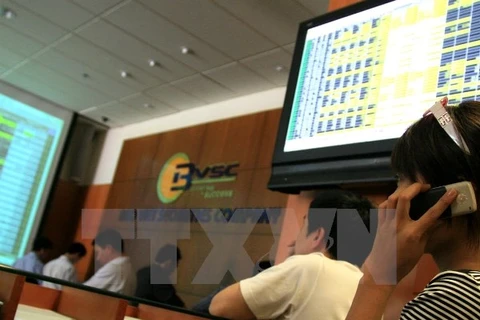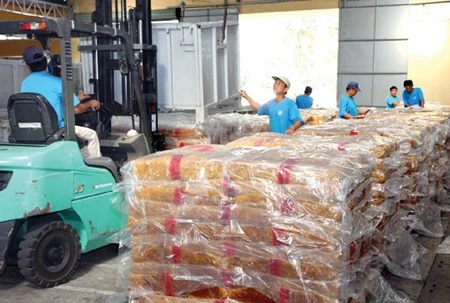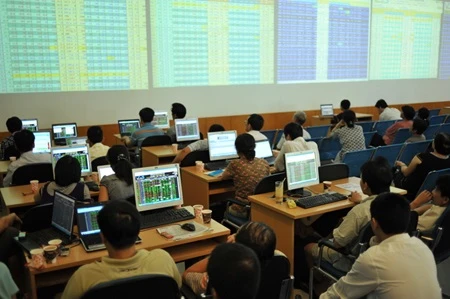 Deputy Prime Minister Vu Van Ninh in a meeting with ministries and agencies. (Photo: baochinhphu.vn)
Deputy Prime Minister Vu Van Ninh in a meeting with ministries and agencies. (Photo: baochinhphu.vn) Hanoi (VNA) - Deputy Prime Minister Vu Van Ninh has called on ministries and agencies to minimise the controlling stake of the State in State-run enterprises (SOEs).
This would open more opportunities for private investors to invest in equitised SOEs in Vietnam, he said.
The deputy PM who is also Head of the Steering Committee for Enterprise Renovation and Development, made the request while chairing a conference in Hanoi last week, to take suggestions from policy-makers on a draft decision to revise Decision 37/2014/QD-TTg on criteria and classification of SOEs to the Prime Minister at an early date.
The draft decision aims to minimize the state ownership in SOEs. Currently, the State still holds a large amount of shares that will reduce the attractiveness to investors. It is attributed to the unchanged corporate governance such as management of road maintenance, waterways, seaports, and public interest.
Besides, the change in the regulations on SOEs has also led to the change in the content and structure of categories or types of SOEs.
Contents of the draft decision in place of Decision 37 will have five new points. Accordingly, only first-tier companies can operate in the form of a holding company instead of two tiers as earlier to match new provisions in the Law on State Capital Management and Use. The draft narrows SOE classification criteria, divided into three groups: Wholly State-controlled fields, fields and branches with 65 percent of State stake, and fields with 50 - 65 percent of stake.
The draft decision requires the government to own 100 percent stakes in companies only in 14 sectors and industries, down from the current 16.
They include defence and security; production and distribution of industrial explosives and toxic chemicals; the national power grid; and nuclear power plants and hydropower plants of exceeding importance for socio-economic development or related to defence and security. The draft decision also includes management of rail infrastructure and transport; flight protection; maritime protection; and post and telecommunications; in addition to lottery; publishing; and preferential loans for socio-economic development.
The areas that go out of the list are management and protection of watershed forests, protective forests, special forests, and production and supply of toxic chemical substances.
Remarkably, the draft decision has also moved ‘Oil and natural gas refining,’ ‘air transport’, and ‘cigarette production’ from the list of SOEs where the State holds from 65 percent to 75 percent of stake to SOEs where the State keeps between 50 percent and 65 percent of stake. The draft has also eliminated some sectors where the State holds the stake such as rubber and coffee trees grown in localities disassociated with national defence and security tasks.
It means that if the State does not keep controlling shares, private businesses will have more chances to be owner of businesses.
Also at the conference, relevant ministries and agencies agreed with suggestions from the Ministry of Planning and Investment to continue minimising the number of SOEs. However, representatives from other ministries and agencies wanted the draft decision to clearly define which sector needed to be equitised and which sector that should be 100 percent owned by the State.
At the conference, the Deputy PM said any ministries or provinces wanted to have State controlling stakes in some sectors. They needed to submit their plan to the Prime Minister for consideration so as to ensure flexibility in equitisation and the disinvestment process.
There was no need to quickly minimise the controlling stake in businesses involved in national defence and security. It should be done gradually, Ninh said. According to the ministry of planning and Investment, between 2016 and 2020, 378 SOEs are expected to be restructured.-VNA























